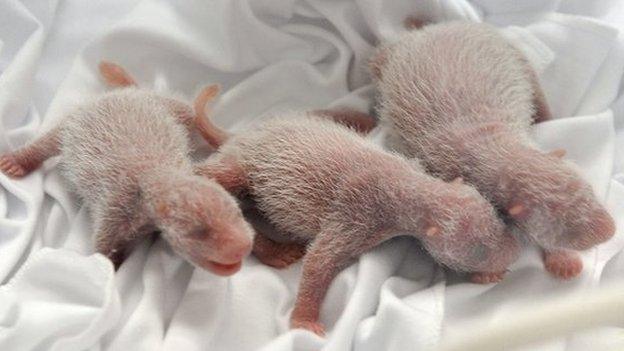Edinburgh Zoo panda may no longer be pregnant
- Published
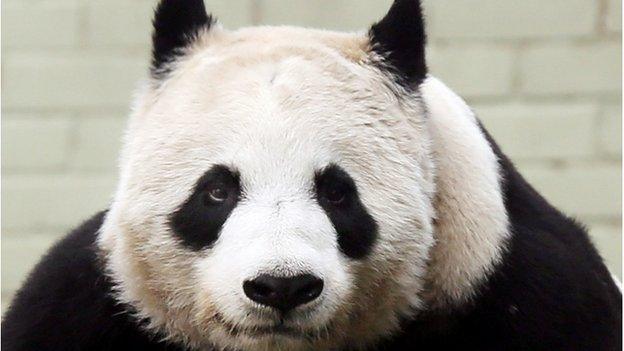
Tian Tian has been in Edinburgh for almost three years
Edinburgh Zoo is concerned that the UK's only female giant panda may no longer be pregnant.
Keepers said Tian Tian had now passed her due date and hormone analysis from last week suggested that "something might be amiss".
They said there was still a remote chance the panda might give birth this year but the evidence suggested it was more likely to be "bad news."
Tian Tian was artificially inseminated in April.
Iain Valentine, director of giant pandas for the Royal Zoological Society of Scotland, said: "She is still displaying some of the behaviours of a pregnant panda, but the scientific data from the urine analysis of her hormones is becoming more atypical.
"There is still a chance she will give birth to a live cub as her progesterone levels have not yet returned to base."
Mr Valentine added: "I must stress, as there has been a lot in the news recently about pandas 'faking' it, that this was definitely not a pseudo or phantom pregnancy.
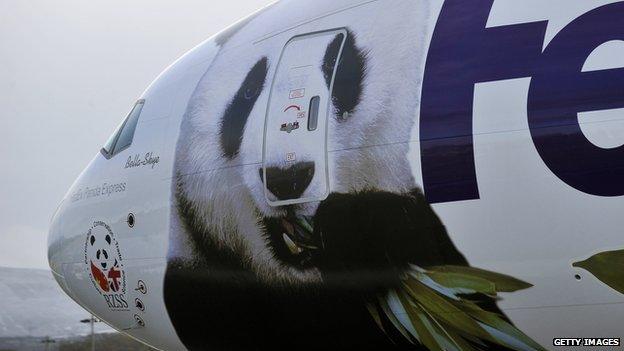
Tian Tian and Yang Guang arrived by a special Panda Express cargo plane
"The results of cutting edge scientific analysis have shown that, across the entire pregnancy, Tian Tian had the profile of a pregnant panda likely to carry to full term.
"We are working with the of the very best panda experts in the world and they were all in agreement."
The zoological society, which runs Edinburgh Zoo, said it was continuing to monitor Tian Tian closely and would know more towards the end of the week.
Libby Anderson, policy director of the Edinburgh-based animal protection charity OneKind, called for the zoo to stop trying to produce a panda through artificial insemination.
"Unlike a human mother who makes the choice to undergo artificial insemination, Tian Tian has no say in whether she has these procedures," she said.
"OneKind has always believed that it is misguided to attempt to breed more captive pandas when they will never return to the wild or improve protection for the wild population in their native habitat.
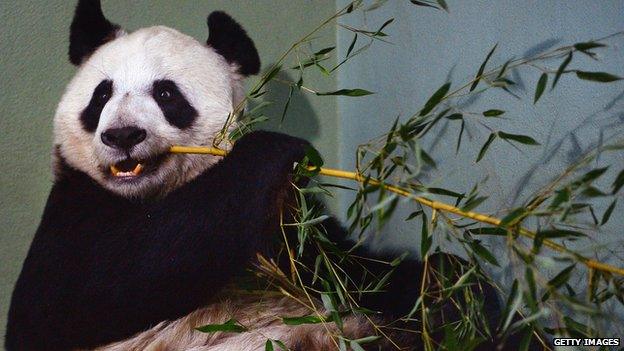
Tian Tian was artificially inseminated in April
"We are sorry to hear that this pregnancy has not worked out. But we think that now is the time to leave these animals in peace."
Giant pandas are renowned as being the biggest crowd pullers in the zoological world, and the deal struck between China and the Scottish Government was intended to be extremely lucrative, although any cubs born at Edinburgh would have to be returned to China at age two.
Tian Tian, which means Sweetie, and male Yang Guang (Sunshine) arrived on loan from China in December 2011.
They were the first giant pandas to live in the UK for 17 years.
The last pandas in the UK, Ming Ming and Bao Bao, left a zoo in London in 1994 after failing to mate.
New tests
Only nine zoos outside China house the animals and in Europe they can only be seen in Madrid, Saint-Aignan in France, Cambron Casteau in Belgium and Vienna, as well as Edinburgh.
Both Edinburgh's new pandas have produced offspring previously, but not with each other.
The latest development comes after two previous attempts by the zoo to get Tian Tian to conceive.
In 2012, the pandas were encouraged to mate naturally but the brief window of opportunity for panda conception, about 36 hours a year, closed without success.
So last year, the zoo decided to artificially inseminate Tian Tian.
The zoo confirmed that Tian Tian did become pregnant but it was most likely that she had reabsorbed the foetus late term.
This year, the zoo delayed announcing the possibility of a pregnancy until much later in the year and using a new set of tests they were able to be much more certain about Tian Tian's condition.
- Published12 August 2014
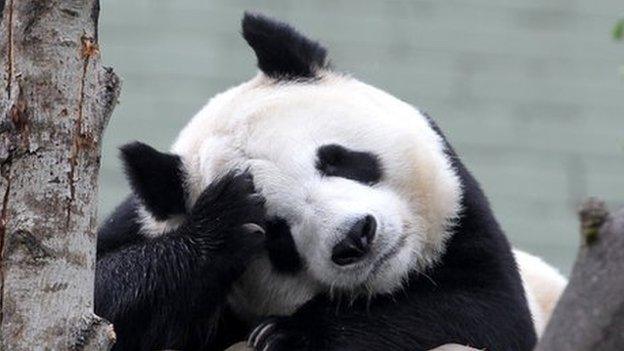
- Published12 August 2014
